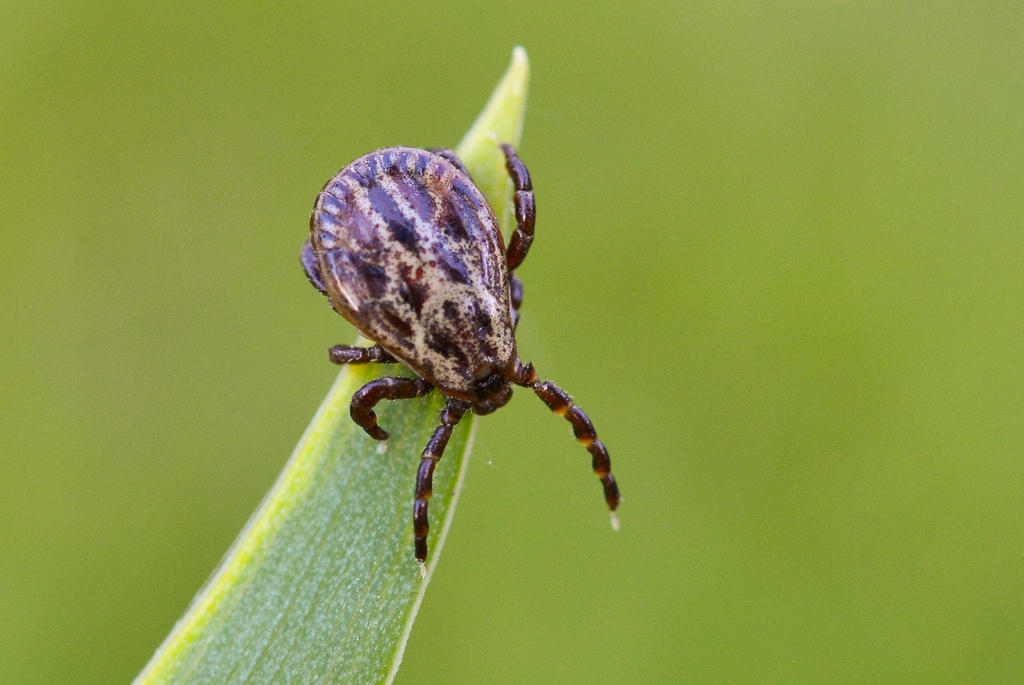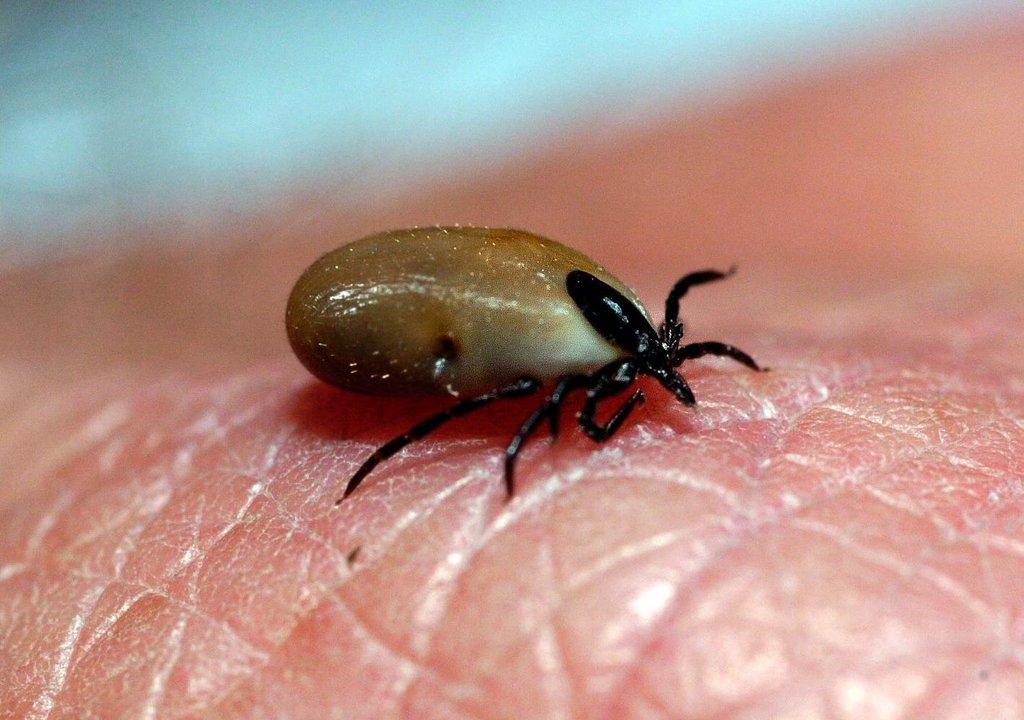
Nationwide vaccination recommended for tick-borne encephalitis

Tick-borne encephalitis (TBE) cases have significantly increased in 2018, and areas of high risk continue to expand. The Swiss government is considering issuing a nationwide vaccination recommendation against the virus.
Almost 230 people have already been infected with the virus – which in rare cases can be fatal – since the beginning of 2018, reported Swiss Public Television, SRF, on Tuesday.
Cases have almost doubled compared to last year’s figures for the same time period.
In addition, the at-risk areas, where the disease is endemic, are increasing, according to the Federal Office of Public Health.
The Zurich area, all of north-eastern Switzerland and large parts of cantons Bern and Aarau are all affected by the virus.
It makes little sense to recommend vaccination against the TBE virus only for certain at-risk regions, Christoph Berger, President of the Swiss Federal Commission for Vaccination, told SRF.
“These areas are almost merging into each other. At some point, it becomes more reasonable and easier to make a general, nationwide vaccination recommendation,” he said.
+ Coming to Switzerland? Watch out for ticks
The commission had already set up a working group to consider whether the vaccination recommendation should be extended to all of Switzerland except for the canton of Ticino. So far, no cases of tick-born encephalitis have been recorded in the Italian-speaking canton.
Health insurance coverage
Such a recommendation would oblige health insurance companies to cover the costs of the vaccination across Switzerland, not just for people who live in an at-risk zone.
Complete protection against the virus requires three vaccinations spread over several months.
The cost of preventing diseases such as meningitis or encephalitis which can be caused by the TBE virus would be much lower than dealing with the complications and permanent physical damage these illnesses may cause, according to Berger.
The recommendations could come into force for the whole of German- and French-speaking Switzerland next year, said Berger. His expert commission will submit a proposal to the federal government; health minister Alain Berset will take the final decision.
Dangerous symptoms
In Switzerland, the tick season starts in March and ends in June, depending on the weather. The health office says ticks are found above all in deciduous forests with lush undergrowth and at an altitude of up to 1,500 metres.
TBE-infected ticks can cause the outbreak of two stages of the disease. During a first episode, which occurs seven to 14 days after the sting, patients suffer flu-like symptoms such as headaches, fever, fatigue or joint complaints.
In 5%-15% of those affected, a second stage of the illness develops, which can last for months and may involve symptoms of meningitis or encephalitis. These symptoms can cause paralysis and leave permanent disabilities. About 1% of cases are fatal.
Much more common than tick-borne encephalitis is Lyme disease, also transmitted through tick bites, which must be treated with antibiotics.

More
Tick bites and Lyme disease on the rise

In compliance with the JTI standards
More: SWI swissinfo.ch certified by the Journalism Trust Initiative































You can find an overview of ongoing debates with our journalists here . Please join us!
If you want to start a conversation about a topic raised in this article or want to report factual errors, email us at english@swissinfo.ch.